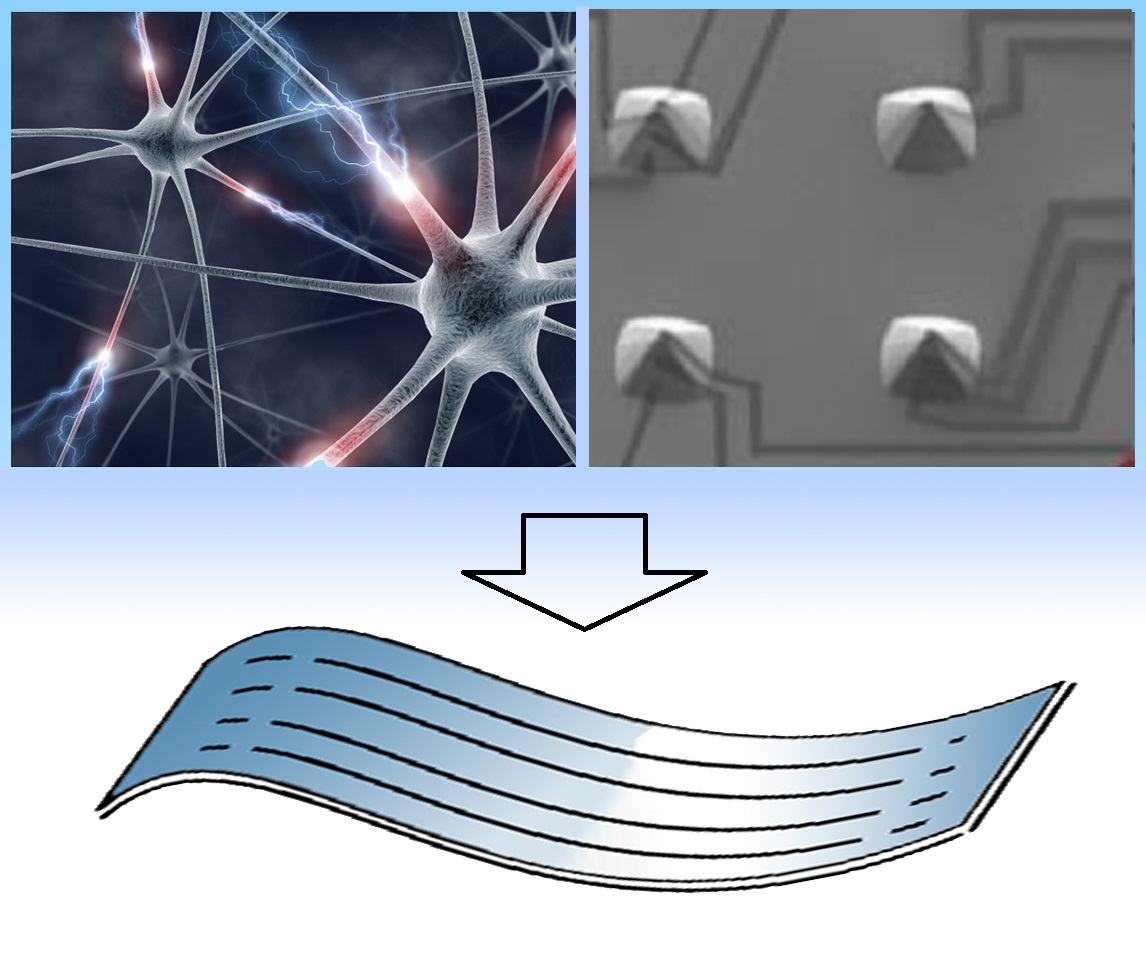MSc thesis project proposal
Transparent and soft 3D microelectrode arrays for brain-on-chip application
Neural tissues exhibit complex synchronized activity. The in-depth study of collective patterns of neural activations is needed to better understand and treat disabling diseases such as migraine, cortical spreading depolarisation, and other brain disorders. To investigate the functioning of neuron networks, it is necessary to measure the neuronal electrical activity not only in 2D, but in 3D, with electrodes penetrating further into the brain tissues.
In the ECTM group of TU Delft, we recently developed 3D microelectrode arrays (MEAs), composed of 2D arrays of Si micropyramids, each micropyramid being endowed with multiple, electrically distinct and vertically stacked microelectrodes. They allow for 3D single-unit recordings with high throughput, which is not possible on commercial MEAs. We were able to successfully measure neuronal activity in 3D, with MEAs integrated on organ-on-chip platform, a significant step towards a better understanding of brain diseases.
The next step is the realization of arrays of 3D electrodes that are transparent and soft:
Why transparent 3D electrodes? Biologists using the organ-on-chip platform need to have visual access through the chip, in order to perform fluorescent imaging analysis, in parallel with electrical sensing and stimulation.
Why soft 3D electrodes? The mechanical compliance between the electrodes and the neuronal tissue is a crucial factor 1) to avoid the formation of scar tissues around the 3D electrodes due to setup micro-vibrations and mechanical mismatch, and 2) to guarantee proper long-term operation of the electrode and electrical coupling with the neurons. The mechanical modulus of the electrode should be as close as possible to that of the brain, and the next generation of 3D MEAs should therefore be made in soft materials.
Assignment
In this Master project, microelectrode arrays with 3D micropyramides made from biocompatible elastomers will be fabricated and characterized.
This experimental project will involve:
- An extensive review of the state-of-the-art in 3D MEA structures and fabrication;
- Conception of microfabrication method;
- Microfabrication of transparent soft 3D MEAs;
- Mechanical and electrical characterization;
- Functional testing of the 3D MEA’s and implementation in in vitro setting;
- Reporting.
Duration: 9 to 12 months
Location: TU Delft, ECTM
Collaboration with LUMC (Leiden)
Requirements
You are an ambitious hands-on master student from Microelectronics, Biomedical Engineering or Applied Sciences. Experience with microfabrication and soft lithography is preferred. You have good communication skills in English, you are independent and also a team player.
If you are eager to work in a motivating atmosphere with highly skilled colleagues, then send us your CV!
Contact
dr. Clementine Boutry
Electronic Components, Technology and Materials Group
Department of Microelectronics
Last modified: 2022-04-13
